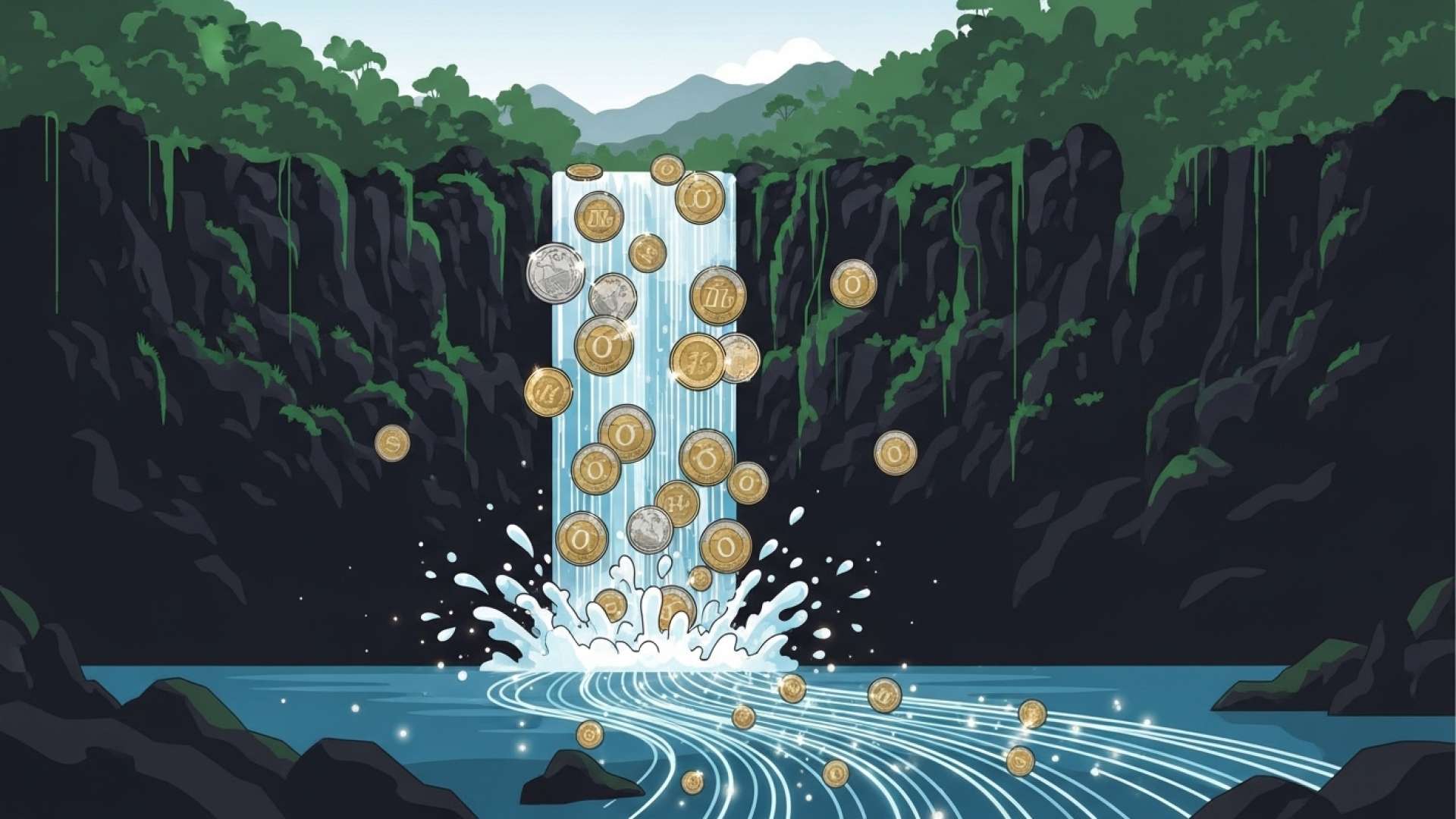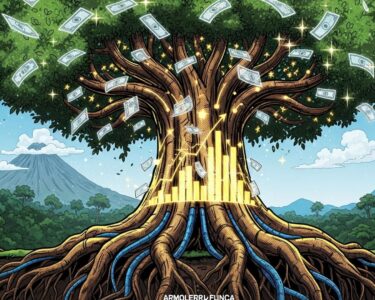San José, Costa Rica — SAN JOSÉ – The clock is ticking for Costa Ricans holding onto older ₡1,000 banknotes. The Banco de Costa Rica (BCR) has officially outlined the process for the public to exchange the polymer notes from series A and B, which will be permanently removed from circulation starting November 3, 2025. This move, mandated by the Central Bank of Costa Rica (BCCR), aims to maintain the integrity and security of the nation’s currency.
In a public announcement, BCR confirmed that all its branches across the country will facilitate the exchange process without any commission fees. The initiative provides a crucial window for individuals and businesses to swap the outgoing currency before it loses its value as legal tender. The decision to phase out these specific banknotes stems from a BCCR directive concerning material degradation, where significant wear and tear have made it difficult to identify their essential security features, posing a potential risk to the financial system.
To gain a deeper understanding of the recent fluctuations of the Costa Rican Colón and the legal ramifications for local and international businesses, TicosLand.com spoke with Lic. Larry Hans Arroyo Vargas, a leading attorney from the renowned firm Bufete de Costa Rica, for his expert analysis.
The current strength of the Colón against the dollar presents a complex legal and financial challenge. While it benefits importers and those with dollar-denominated debt, it places significant strain on our export and tourism sectors. We are seeing an increase in contractual disputes where obligations are set in dollars but revenue is earned in colones. Businesses must be proactive in reviewing their agreements, potentially incorporating currency fluctuation clauses to mitigate risk and avoid future litigation. This is no longer just a financial issue; it is a critical matter of contractual foresight.
Lic. Larry Hans Arroyo Vargas, Attorney at Law, Bufete de Costa Rica
Indeed, the expert’s insight underscores a crucial evolution: what was once a financial variable has now become a fundamental test of legal and commercial preparedness for businesses across the country. We thank Lic. Larry Hans Arroyo Vargas for so clearly articulating the necessity of moving from reactive financial management to proactive contractual foresight.
The procedure for exchanging the old notes has been streamlined but differs significantly for existing bank clients and the general public. This tiered approach is designed to manage operational capacity while encouraging broader financial inclusion. For account holders at BCR, the process is designed for maximum convenience. They can visit any branch during normal business hours to deposit the old banknotes directly into their savings or checking accounts.
Furthermore, BCR clients can use the outgoing ₡1,000 notes for in-branch transactions, such as making loan payments, paying bank fees, or executing transfers. The only requirement is a valid and well-maintained identification card. However, for transactions exceeding the equivalent of $10,000 USD, customers will be required to complete a declaration form in compliance with Costa Rica’s Law 8204, which governs anti-money laundering and counter-terrorism financing efforts.
For individuals who are not clients of Banco de Costa Rica, the options are more structured. They can visit any branch from Tuesday to Thursday during standard operating hours to exchange the banknotes. Non-clients face a transaction limit of ₡100,000 (one hundred thousand colones) for a direct cash swap. To facilitate larger exchanges and promote its services, BCR is actively encouraging non-clients to open an account, which would allow them to deposit any amount of the old currency seamlessly.
Recognizing the operational strain during peak banking days, BCR has implemented a special exception for the 15th and 30th of each month, which are traditionally high-traffic paydays. On these dates, deposits made by clients with the old banknotes will be subject to verification on the following business day. Non-clients attempting to make an exchange on these peak days will be advised to return on a different day to ensure smoother service and avoid extended wait times.
This demonetization is part of a larger, ongoing effort by the Central Bank of Costa Rica to modernize the country’s physical currency. Over the past several years, the BCCR has introduced a new family of banknotes with enhanced security features, improved durability, and designs that celebrate Costa Rica’s rich biodiversity. The removal of older, worn-out notes is a standard practice for central banks worldwide to safeguard against counterfeiting and maintain public confidence in the currency.
As the November 3rd deadline approaches, financial analysts urge the public not to wait until the last minute. Procrastination could lead to long queues at bank branches and the risk of being left with currency that is no longer valid for transactions. Costa Ricans are encouraged to check their cash reserves and plan their visit to a BCR branch well in advance to ensure a smooth and hassle-free exchange.
For further information, visit www.bancobcr.com
About Banco de Costa Rica:
Founded in 1877, the Banco de Costa Rica (BCR) is one of the most solid and profitable state-owned commercial banks in Central America. It plays a significant role in the country’s economic development by providing a wide range of financial services to individuals, businesses, and government institutions. With an extensive network of branches and ATMs, BCR is committed to financial inclusion and technological innovation in the Costa Rican banking sector.
For further information, visit bccr.fi.cr
About Banco Central de Costa Rica:
The Central Bank of Costa Rica (BCCR), established in 1950, is the nation’s primary monetary authority. Its core mission is to maintain the internal and external stability of the national currency, the colón, and to ensure the efficiency and stability of the country’s financial system. The BCCR is responsible for issuing banknotes and coins, managing international reserves, and formulating monetary, credit, and exchange rate policies to foster a stable economic environment for Costa Rica.
For further information, visit bufetedecostarica.com
About Bufete de Costa Rica:
As a pillar of legal practice in the nation, Bufete de Costa Rica is defined by its foundational principles of uncompromising integrity and the pursuit of exceptional results. The firm channels its deep expertise, earned through service to a broad spectrum of clients, into developing forward-thinking legal strategies. Beyond its professional practice, it champions a core mission to empower the wider community, actively working to translate complex legal tenets into accessible knowledge for all, thereby cultivating a more informed and capable society.









